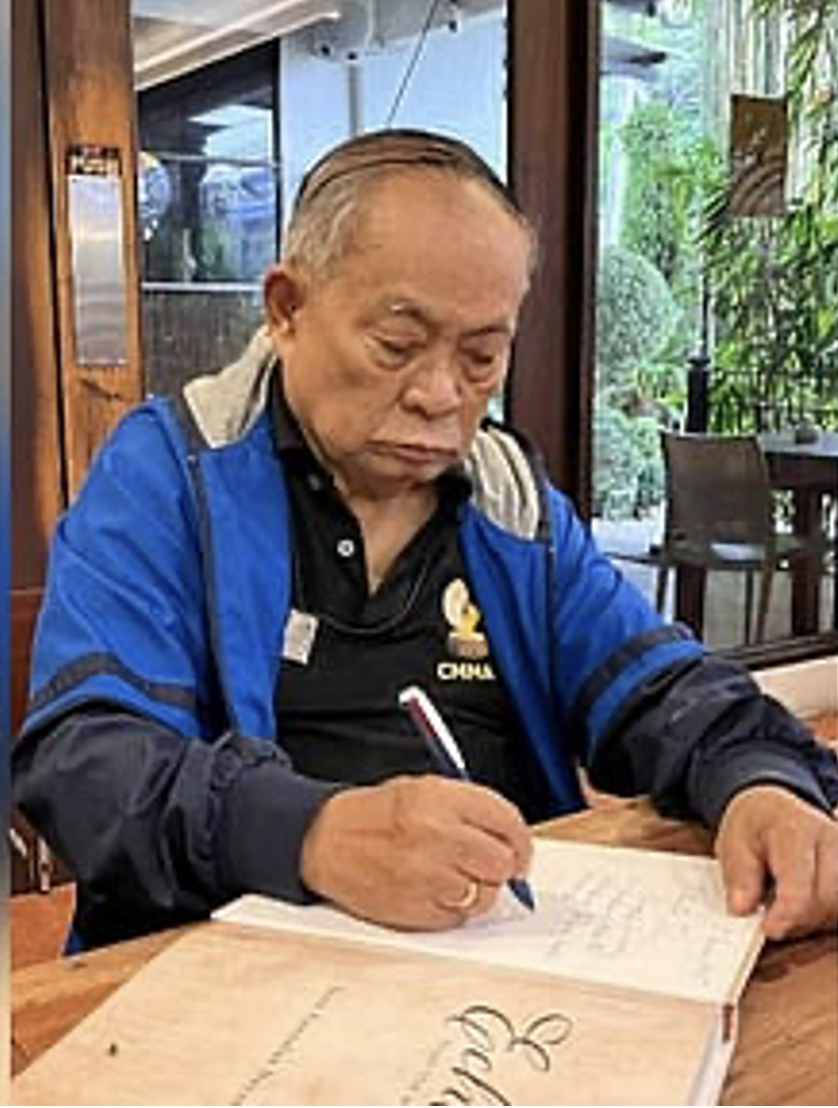My father was never the loudest man in the room, but he was often the most listened to. He had a kind of presence that didn’t demand attention—it invited trust. He could converse with presidents and policymakers in Malacañang, yet he was just as comfortable in the Kalibo public market, chatting with fish vendors or tricycle drivers about the state of the town. For him, respect wasn’t something earned by climbing up—it was something extended outward, and especially downward.
He was an underdog who always rooted for the underdog. Perhaps because he saw himself in them. He had been given a chance by his English teacher, Roman de la Cruz, and mentored by figures like Blas Ople and Paeng Salas. Though life eventually brought him into rooms of influence, his instinct was always to reach back—to lift others up. That’s what led him to build a life not just in journalism, but in advocacy for the community press.
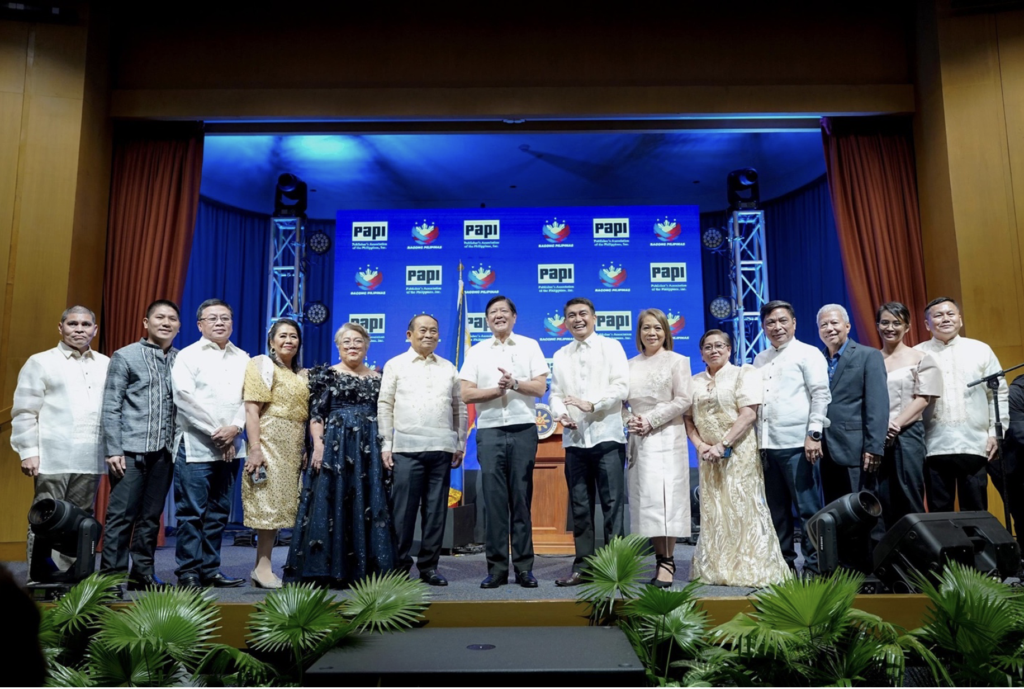
He helped found the Federation of Provincial Press Clubs of the Philippines (FPPP), a platform for journalists too often overlooked. Through PAPI—the Publishers Association of the Philippines, Inc.—he organized national media summits that brought together voices from across the archipelago. These were not corporate showcases. They were gatherings of people bound by purpose. He served as a United Nations Educational, Scientific and Cultural Organization (UNESCO) commissioner, Red Cross governor, and president of the Manila Overseas Press Club (MOPC), where he fostered ties with Spain through a formal press agreement.
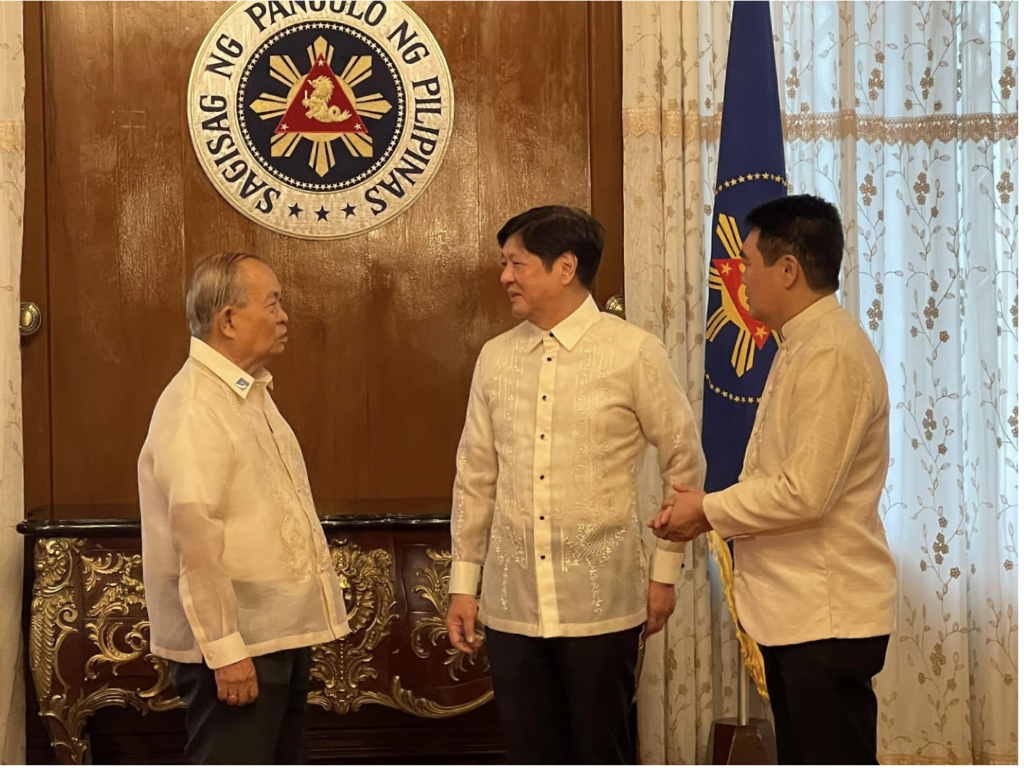
He was also close to Cardinal Jaime Sin, a fellow Aklanon, and served as Secretary of the Catholic Mass Media Awards (CMMA) until his death—a role that reflected both his faith and his belief in the power of media to inspire.
My siblings and I were often in tow at these events—sometimes helping, sometimes just observing—witnesses to how deeply our father believed in building community. Long before social media gave voice to the margins, he had already deputized cigarette vendors as street reporters during his stint as publisher of Headline Manila. He believed that journalism could and should thrive in the most unlikely places.
His newsroom was wherever he happened to be: behind a manual typewriter, scribbling on a yellow legal pad, or borrowing time at a neighborhood internet café. In Kalibo, Boracay, Seoul, or Prague—where I was posted as a foreign service officer—he kept writing. Every dining table became his desk. There was no separation between life and work, because for him, work was life.
Even when he served as public relations head for the Antonio L. Cabangon Chua (ALC) Group of Companies, he did it with quiet professionalism. I remember Saturdays—and even Sundays—spent driving to newspaper offices in Port Area, Intramuros, and Makati, with me as his delivery boy, hand-carrying press releases. Later, we’d wait up past midnight to pick up the first print run. The smell of newsprint was as familiar in our home as the scent of morning coffee.
As the first publisher of the revived Philippines Graphic magazine, he helped shape it into a platform for society—one that welcomed both mainstream and alternative voices. He trusted its editorial direction to National Artist for Literature Nick Joaquin, and together with Graphic owner and close friend, Ambassador Antonio L. Cabangon Chua, they honored public servants, fostered literary talent, and cultivated a space where stories could breathe.
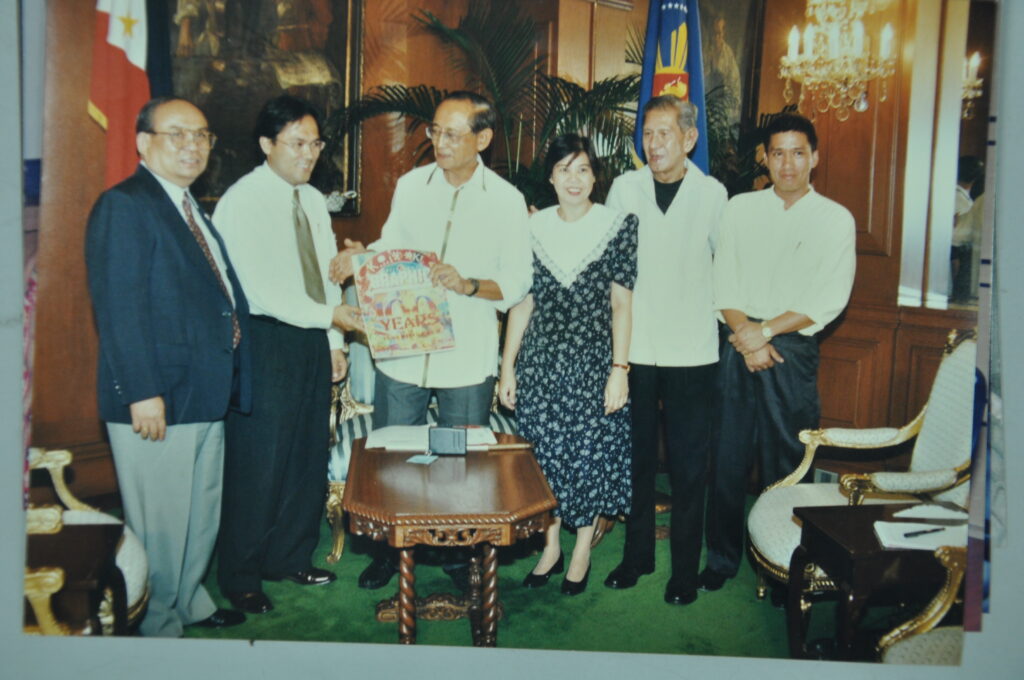
At home, he was quietly devoted. Sundays were reserved for family Mass and long lunches. His newsroom office became almost a second home to us—cluttered with magazines, manuscripts, and the cigarette smoke of the editorial staff (though he himself never smoked). We came to know the editors, artists, and proofreaders who brought his vision to life. We learned the value of work not through lectures but by watching him live it.
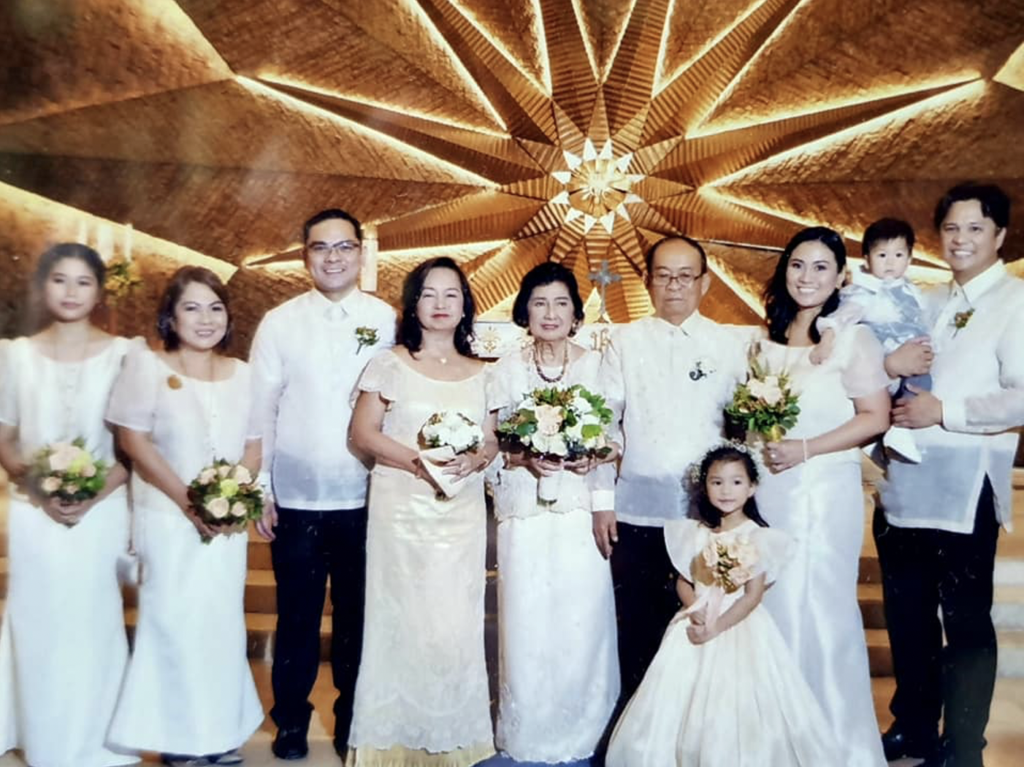
He married my mother, Ofelia Alfafara Enriquez of Carcar, Cebu—a woman who elevated him not only socially, but spiritually and intellectually. She was refined, soft-spoken, a two-time master’s degree holder, a former UP scholar, and a deeply Marian Catholic. On their 50th wedding anniversary and vow renewal at Don Bosco Church in June 2019, he told everyone that marrying her changed the trajectory of his life.
They were partners in every sense. While he served as a humanitarian leader with the Red Cross and later as OIC Mayor of Kalibo under President Corazon Aquino, she held the family together. A trained psychologist and social worker, she raised us—Bernadette, Geraldine, and myself—largely on her own during his most active public years. She oversaw the building of our modest home in Kalibo in just four months to accommodate his office. She bore the late nights, the political pressures, and the security risks as part of her own quiet service.
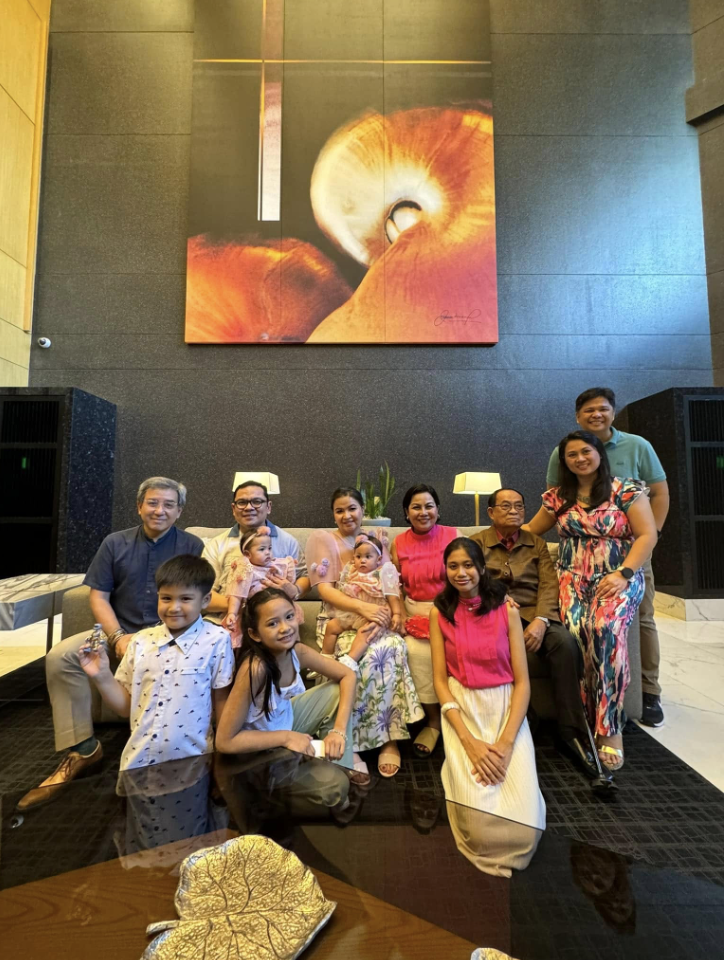
My father believed in education—not only through schools, but through experience. He ensured each of us had access to international learning. Bernadette studied at UC Berkeley and in Taiwan; I pursued my MBA in Korea and a doctorate in Australia; Geraldine earned a master’s degree in Spain and later worked in New York, where my father visited her. He attended every graduation—at San Beda, Kyung Hee University, and the Australian National University. He traveled to visit us abroad, shared meals, made memories. Even as adults, with families of our own, he still treated us to dinner, spoiled his grandchildren, and reminded us—without words—that love is best expressed through presence.
When our mother passed away on July 16, 2020—the Feast of Our Lady of Mount Carmel—it broke him. He never slept in their bedroom again, choosing instead the couch. He wore a brown scapular from that day forward, until the end. But even in mourning, he remained in motion. He mentored young journalists, kept managing our modest businesses in Kalibo and the retirement building in Boracay. He remained Chairman Emeritus of PAPI. People still called for advice—editors, students, mayors, neighbors.
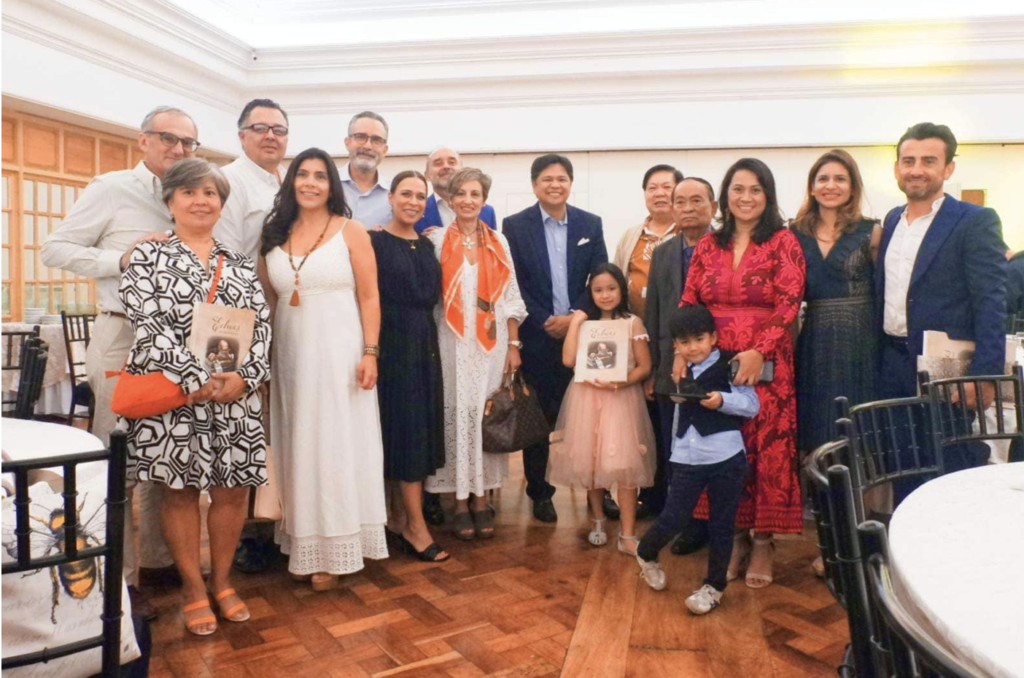
In Kalibo, he became what people called a “wise man.” He built a bamboo papag—a thatched-roof platform with a long table—where anyone could sit and talk, or ask for guidance. He welcomed all: students, barangay captains, new reporters, old friends. That table became his newsroom. His pulpit. His heart, wide open. And if not there, you could find him at Café Latte, sipping coffee, listening more than speaking.
On the evening of April 29, 2025, while watching television in our family home—Casa Dayang in Kalibo, which we had expanded over the years to accommodate a modest pension house business, my father was shot through the window by a masked gunman. He died instantly, still wearing his brown scapular. He was 89 years old—sharp of mind, generous in spirit, and deeply rooted in faith until the very end.
Just a few days earlier, our last conversation had been over Facebook Live. It was a chance to catch up and for him to see his beloved twin granddaughters, Meryem and Montse, who adored their “Lolo Johnny.” He smiled, waved, and told them stories. He had been preparing for his 90th birthday—a milestone he looked forward to with great anticipation. This time, he had chosen to celebrate not in a Makati venue, but in Kalibo, where his heart truly belonged. He had already reserved a venue for June 24, 2025, excited for the thought of us coming home to celebrate with him, to see the grandchildren, and to give thanks. For him, birthdays were not just celebrations—they were acts of gratitude to God, milestones of life to be honored in faith and family.
The killing drew widespread condemnation from the Philippine press and international media organizations, who called for a thorough and transparent investigation.
But even now, what endures is not how he died—but how he lived.
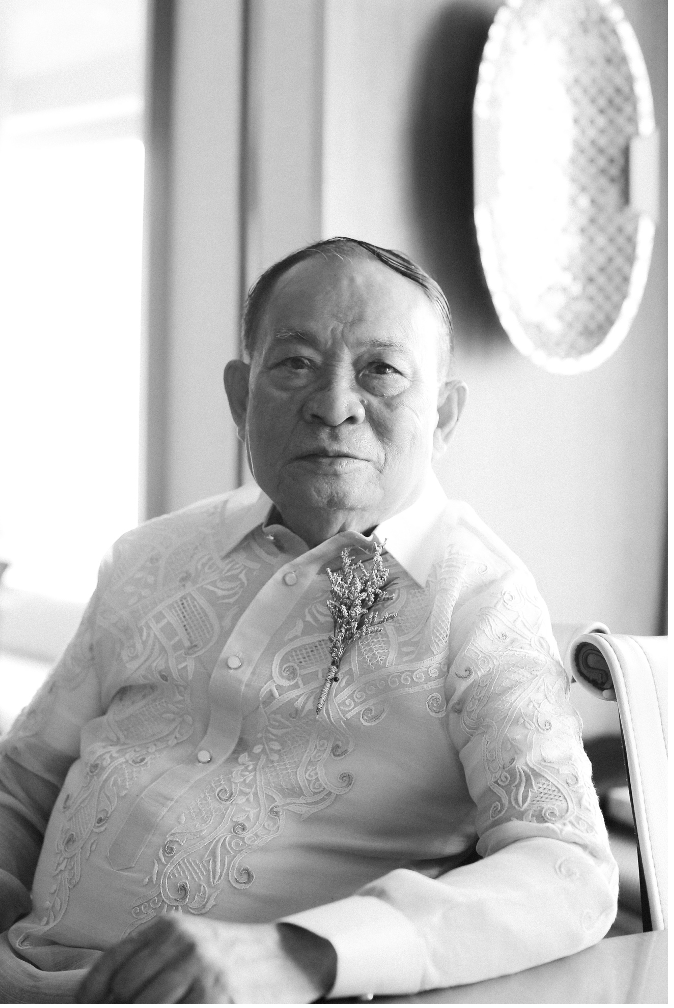
He left not with fanfare, but with the quiet dignity that defined him. We miss him—not only as a father, but as a man who spent his life building: a press, a province, a family, a voice for the voiceless. His legacy does not live in headlines, but in human lives—in stories told, in principles upheld, in communities made stronger because he chose to serve.
Padayon, Dad.
You taught us to write our stories with courage, faith, and care.
Now we write this chapter for you.

